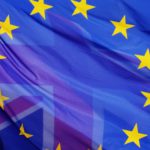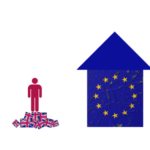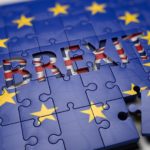The UK and the EU-27 have agreed on an extension to Brexit, with the new deadline for the UK’s withdrawal moved back to 31 October 2019. The UK may leave the EU earlier if parliament passes the Withdrawal Agreement agreed by the Government and the EU. The Government and the Opposition have engaged in talks […]
Read moreUncategorised
An Uncommon Approach to Brexit
On 27 March, the House of Commons voted on eight approaches to “Brexit”, as alternatives to the Withdrawal Agreement negotiated between the UK and the EU in 2018. Votes on these plans were indicative i.e. they were not binding on the government. In the event, all motions were rejected, including motions in favour of a […]
Read morePlanning for No Deal: The UK’s temporary tariff proposals
With the UK parliament showing little sign of resolving its differences of opinion with itself on the UK’s departure from the EU, the UK government has published a list of customs duties that would apply “temporarily” in the event of a “no-deal“ exit. The government says that under such arrangements 87% of imports to the […]
Read moreMore time for Brexit Negotiations?
Extending the time limit for negotiating the UK’s withdrawal from the European Union looks increasingly like the only realistic course. But the difficulties and risks are enormous, not least because there is no common view as to the duration of that extension. And because of that, the risks of a “no-deal” outcome remain substantial. Background […]
Read moreCounting our chickens: US negotiating objectives and UK trade policy
The United States Trade Representative (USTR) has released negotiating objectives for a prospective Free Trade Agreement (FTA) with the UK. The publication of such objectives is a routine event before the US enters into any trade negotiations. But it made headlines in the UK, which has little or no direct experience of trade negotiations. The […]
Read moreThe Other “No Deal”: Brexit and FTAs with non-EU countries
Political debate in the UK has been dominated in the last few months by the issue of the “Irish Backstop”. Division over the issue has prevented parliamentary ratification of the Withdrawal Agreement negotiated by the UK Government and the EU. The impact of the UK leaving the EU on a “no deal” basis – i.e. […]
Read moreThe UK’s Agriculture Bill and Trade Policy After Brexit
Introduction The Agriculture Bill is part of the Government’s Brexit preparation. As the UK leaves the EU, British farmers will no longer be able to receive EU subsidies and will not have to comply with a number of regulations. However, it is likely that they will require financial support. The Bill brings together agriculture and […]
Read moreCan CARIFORUM-UK Trading Relations Survive the Clouds of Uncertainty Hanging over UK-EU Relations?
Brexit negotiations between the UK and the EU create a “policy externality”. That is, their outcome will have effects on third parties that have no direct say in the negotiations. The scope for these externalities increases the more these parties are dependent on the UK and EU for their trade, and the bigger the share […]
Read moreBrexit – Where now?
Where the United Kingdom stands now UK politics are in turmoil following the Government’s last-minute decision on 10 December to postpone the House of Commons “meaningful vote” – which had been scheduled for the following day – on the draft UK/EU Withdrawal Agreement and its accompanying Political Declaration on future bilateral relations. Ministers had been […]
Read moreBrexit – Wherever Next?
BREXIT – WHEREVER NEXT? On November 14 2018 the United Kingdom Cabinet agreed, following what was described as an “impassioned” debate, to the draft EU Withdrawal Agreement and the associated Political Declaration on the future UK/EU relationship which had been negotiated by officials. That opened the way for the EU 27 heads of government, to […]
Read more






